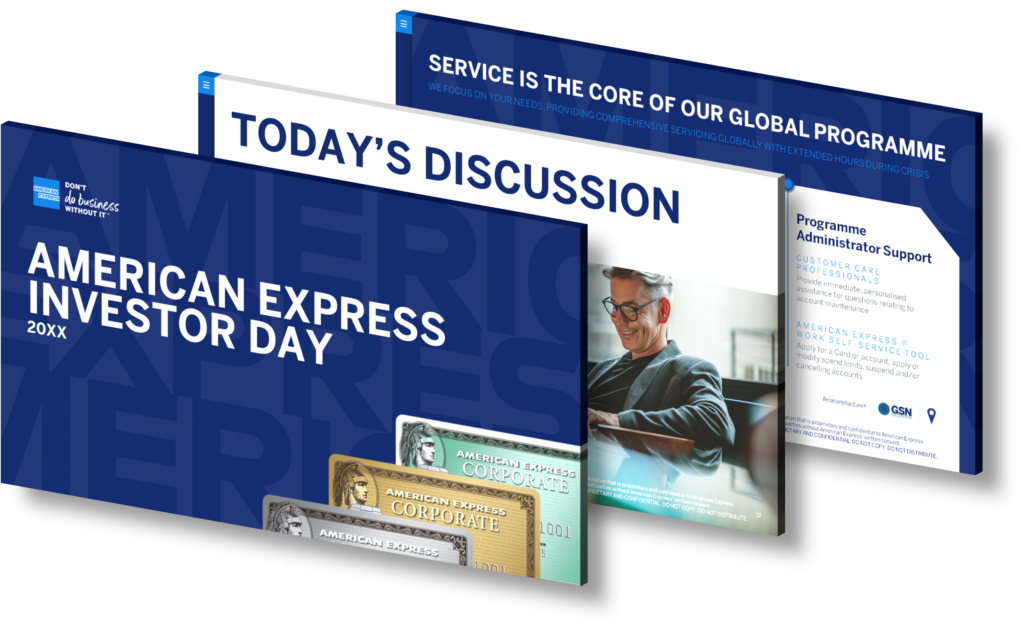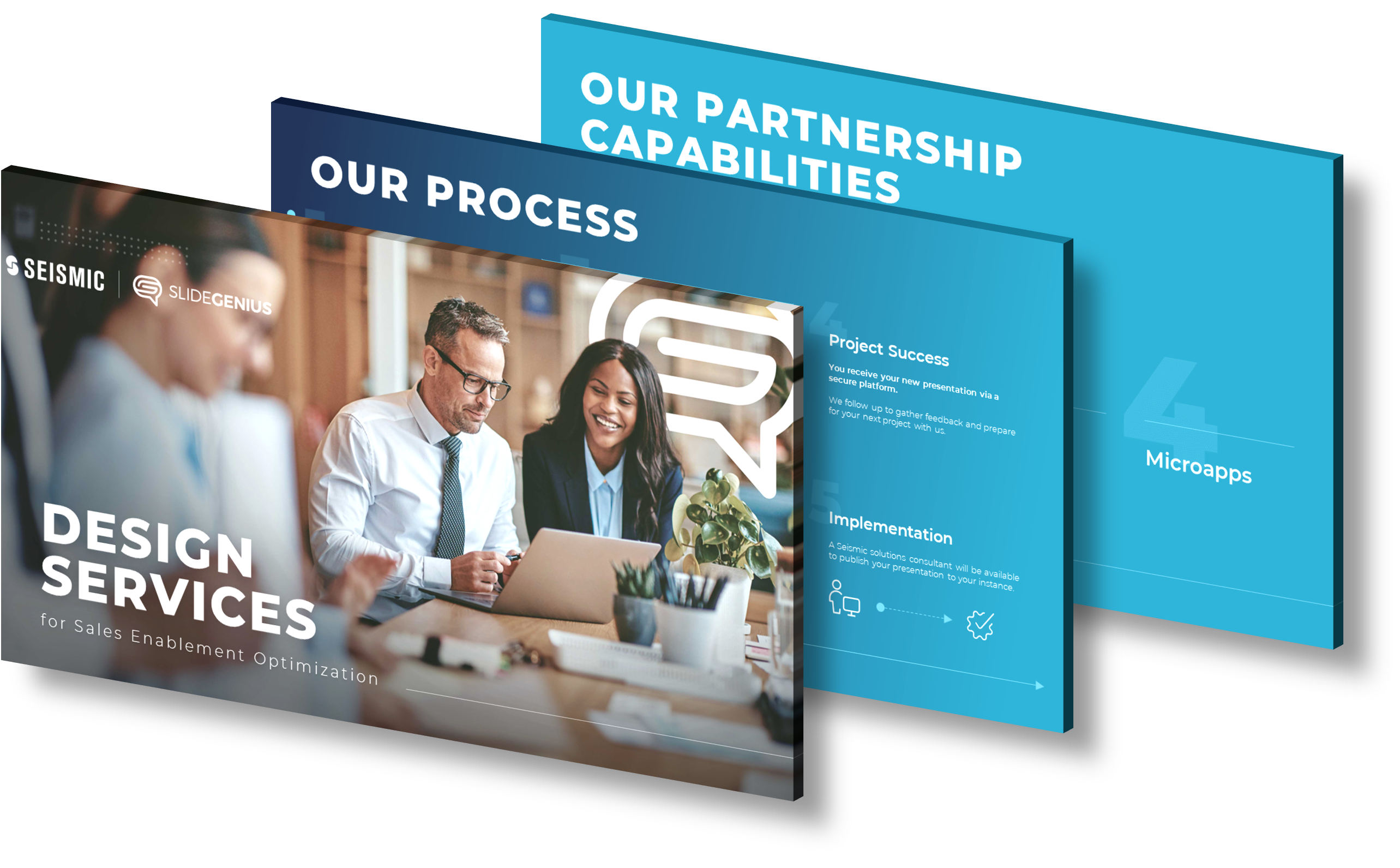How can investor relations in Retail leverage collaboration tools for impactful quarterly earnings presentations?
Investor relations in Retail can significantly leverage collaboration tools for impactful quarterly earnings presentations in several ways. Understanding these methods can help make a difference in the outcome of these important meetings.
Firstly, collaboration tools enable real-time updates and editing. This means multiple team members can work together on the presentation simultaneously, ensuring the most accurate and up-to-date information is included. This is especially important when dealing with rapidly changing financial data.
Additionally, these tools often include features for adding comments, questions, and suggestions directly within the presentation. This allows for open communication and immediate feedback, reducing the risk of errors or misunderstandings. It also provides an opportunity for team members to contribute their unique insights and perspectives, leading to a more comprehensive and impactful presentation.
Collaboration tools also offer cloud-based storage, making the presentation accessible from any location. This can be particularly beneficial for teams that are geographically dispersed, as it allows everyone to stay involved and informed, regardless of their physical location.
Moreover, these tools often include presentation templates and design features that can help to create a more visually appealing and professional-looking presentation. This not only helps to engage the audience but also reinforces the company’s brand and identity.
Finally, collaboration tools can help to streamline the rehearsal process. Team members can practice the presentation together virtually, providing feedback and making adjustments in real time. This ensures everyone is prepared and confident when it comes time to present to investors.
In conclusion, by leveraging collaboration tools, Retail Investor Relations teams can work together more effectively, create more impactful presentations, and ultimately, achieve their goal of successfully communicating their company’s financial performance and future prospects to investors.
At SlideGenius, we encourage and support the use of these tools in the creation of our custom presentations. Our experts are well-versed in a variety of collaboration tools, ensuring seamless teamwork and a final product that accurately reflects your company’s vision and objectives.
View Our Presentation Portfolio

What are the key elements of creating the best business pitches for presentations?
The key elements of creating the best business pitches for presentations include thorough research and understanding of the target audience, a clear and compelling message, visually appealing and well-organized slides, effective storytelling techniques, and confident delivery. By incorporating these elements, you can captivate your audience, convey your ideas effectively, and increase the chances of success in your business pitches.
What are some recommended templates for creating impactful business pitches?
At SlideGenius, we provide a wide array of professional and highly impactful business pitch templates. Our designs are not just aesthetically pleasing, but they are also crafted to effectively communicate your message and engage your audience.
Some of our most recommended templates include:
- Investor Pitch Deck Template: This is ideal for startups and businesses seeking investments. It contains slides for an executive summary, business model, market size, competitive analysis, financial projections, and more.
- Sales Pitch Deck Template: This is perfect for businesses aiming to boost their sales. It includes slides for showcasing your products or services, presenting customer testimonials, and explaining your sales strategy.
- Corporate Pitch Deck Template: This is designed for corporate presentations. It features slides for company overview, team introduction, milestones and achievements, future plans, and more.
- Product Launch Pitch Deck Template: This is great for businesses launching a new product or service. It offers slides for product overview, benefits, market analysis, marketing strategy, launch timeline, and more.
Remember, the above are just templates to get you started. At SlideGenius, we believe in personalization and we understand that each business has unique requirements. Therefore, we offer custom design services where our team of expert designers can tailor a pitch deck specifically to meet your needs, ensuring it aligns perfectly with your brand and objectives.
View Our Presentation Design Portfolio

What are some of the best examples of business pitches?
Some of the best examples of business pitches include the Airbnb pitch deck, the Uber pitch deck, and the Buffer pitch deck. These pitches are highly regarded for their clear and compelling storytelling, effective use of visuals, and ability to communicate the value proposition of the business in a concise and engaging manner. By studying these successful examples, you can gain insights into how to craft a persuasive and impactful business pitch for your own presentations.
What are some key strategies for delivering successful business pitches?
To deliver successful business pitches, it is essential to focus on clear and compelling storytelling, engaging visuals, and a strong understanding of your audience’s needs. Additionally, practicing and refining your delivery, incorporating data and evidence to support your points, and being prepared to address questions and objections are all key strategies for success. By implementing these tactics, you can increase the effectiveness of your business pitches and improve your chances of securing new opportunities.
What are some examples of the most successful business pitches in history?
Some examples of the most successful business pitches in history include Steve Jobs‘ pitch for the iPhone, Mark Zuckerberg’s pitch for Facebook, and Elon Musk’s pitch for Tesla. These pitches were successful because they effectively communicated the unique value proposition of their products, showcased a strong business strategy, and demonstrated the potential for significant growth and profitability.
What are some examples of restaurant business pitches that can help me create an impactful presentation?
Creating an impactful restaurant business pitch requires a well-structured presentation that clearly communicates your concept, market potential, business model, and financial projections. Here are some examples and elements to include in your presentation, along with resources from SlideGenius and PitchDeck.com to help you get started:
1. Executive Summary
- Overview: Briefly describe your restaurant concept, mission, and vision.
- Unique Selling Proposition (USP): Highlight what sets your restaurant apart from competitors.
2. Market Analysis
- Industry Trends: Provide insights into current trends in the restaurant industry.
- Target Market: Define your target customer demographics and psychographics.
- Competitive Analysis: Analyze your competitors and explain your competitive advantages.
3. Business Model
- Revenue Streams: Outline how your restaurant will generate revenue (e.g., dine-in, takeout, delivery).
- Cost Structure: Detail the major costs involved in running your restaurant, including food costs, labor, and overhead.
4. Menu and Services
- Menu Highlights: Showcase key menu items with appealing visuals and descriptions.
- Service Style: Describe the type of service (e.g., fine dining, casual, quick service) and any unique features.
5. Marketing Strategy
- Promotion: Explain how you will attract and retain customers through marketing campaigns, social media, and partnerships.
- Branding: Discuss your brand identity, including logo, colors, and overall aesthetic.
6. Operations Plan
- Location: Provide details on the restaurant location, layout, and ambiance.
- Staffing: Outline your staffing plan, including key roles and responsibilities.
7. Financial Projections
- Start-up Costs: List the initial investment required to launch the restaurant.
- Revenue Projections: Provide detailed financial projections for the first few years, including sales, expenses, and profit margins.
- Break-even Analysis: Show when you expect to break even and start making a profit.
8. Team
- Management Team: Introduce the key members of your team and their relevant experience.
- Advisors: Highlight any advisors or consultants who bring valuable expertise to the project.
9. Call to Action
- Investment Ask: Clearly state the funding you seek and how it will be used.
- Next Steps: Encourage potential investors to take action, such as scheduling a meeting or visiting the restaurant site.
Examples of Successful Restaurant Pitches:
- Sweetgreen: Known for its focus on healthy, locally sourced ingredients, Sweetgreen’s pitch emphasizes its mission-driven approach and market potential in the fast-casual sector.
- Chipotle: Highlighting its commitment to “food with integrity,” Chipotle’s pitch showcases its strong brand identity and scalable business model.
- Blue Apron: As a meal kit delivery service, Blue Apron’s pitch includes detailed market analysis, customer acquisition strategy, and a clear path to profitability.
For professional help in creating a compelling restaurant business pitch, consider using services like SlideGenius and PitchDeck.com, which specialize in custom presentation design tailored to your specific needs.
Additional Resources:
- SlideGenius Portfolio: View hundreds of presentation examples and get inspiration for your pitch.
- PitchDeck.com: Find professional pitch deck templates and design services to enhance your presentation.
By incorporating these elements and utilizing professional resources, you can create an impactful and persuasive restaurant business pitch.
What are some examples of effective business pitches?
View Our Presentation Design Portfolio

What are some effective strategies for creating impactful business pitches?
Some effective strategies for creating impactful business pitches include clearly defining your target audience, crafting a compelling story, highlighting the unique value proposition of your product or service, using visual aids to enhance your message, practicing and refining your delivery, and incorporating persuasive language and data to support your claims. By implementing these strategies, you can increase the chances of capturing your audience’s attention and achieving your desired outcomes in business pitches.
What are some effective strategies for creating compelling new business pitches?
Some effective strategies for creating compelling new business pitches include conducting thorough research on the target audience and their needs, crafting a clear and concise message that highlights the unique value proposition of your business, using visual aids and storytelling techniques to engage and captivate your audience, and practicing and refining your pitch to ensure a confident and persuasive delivery. By implementing these strategies, you can increase your chances of winning new business and impressing potential clients.